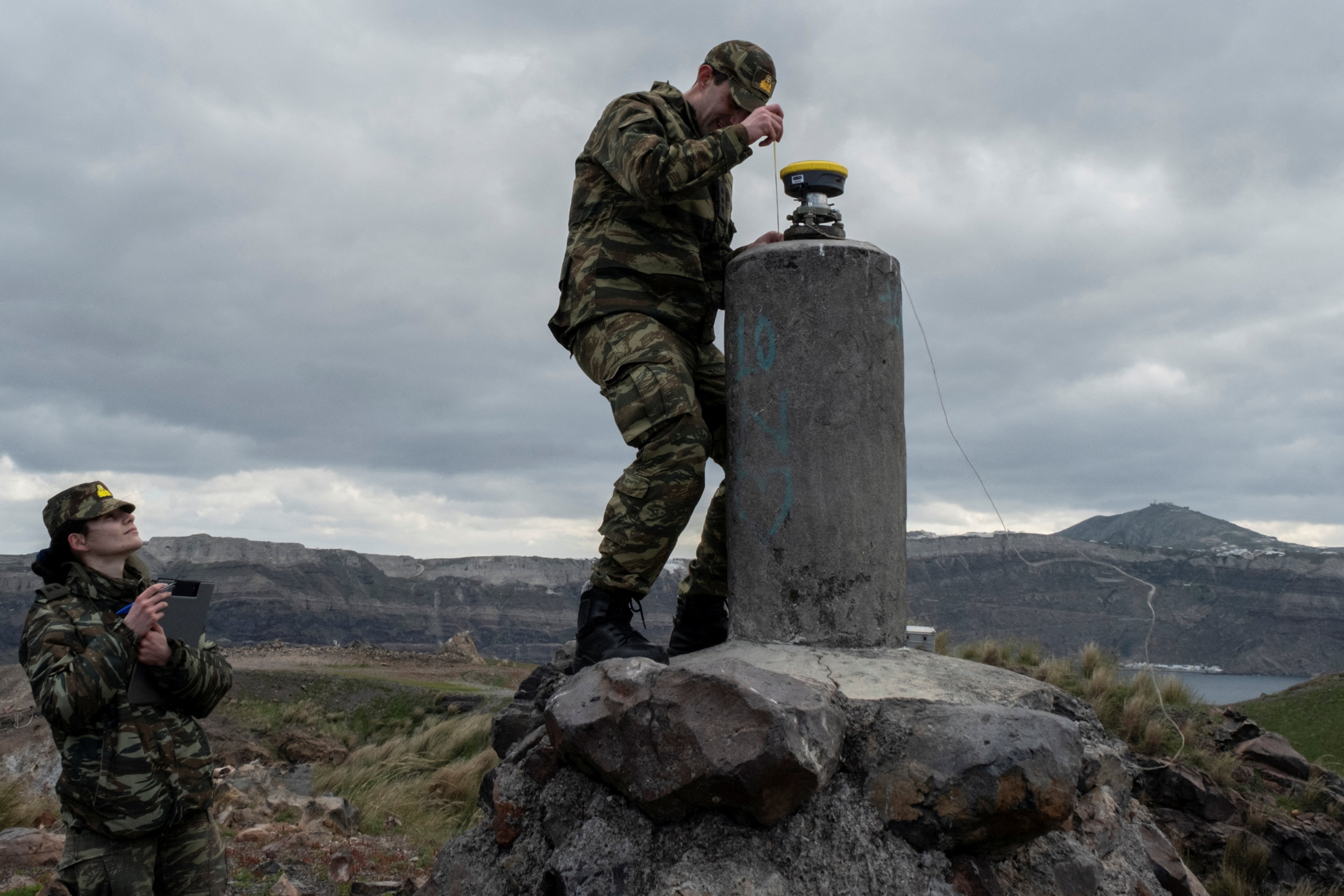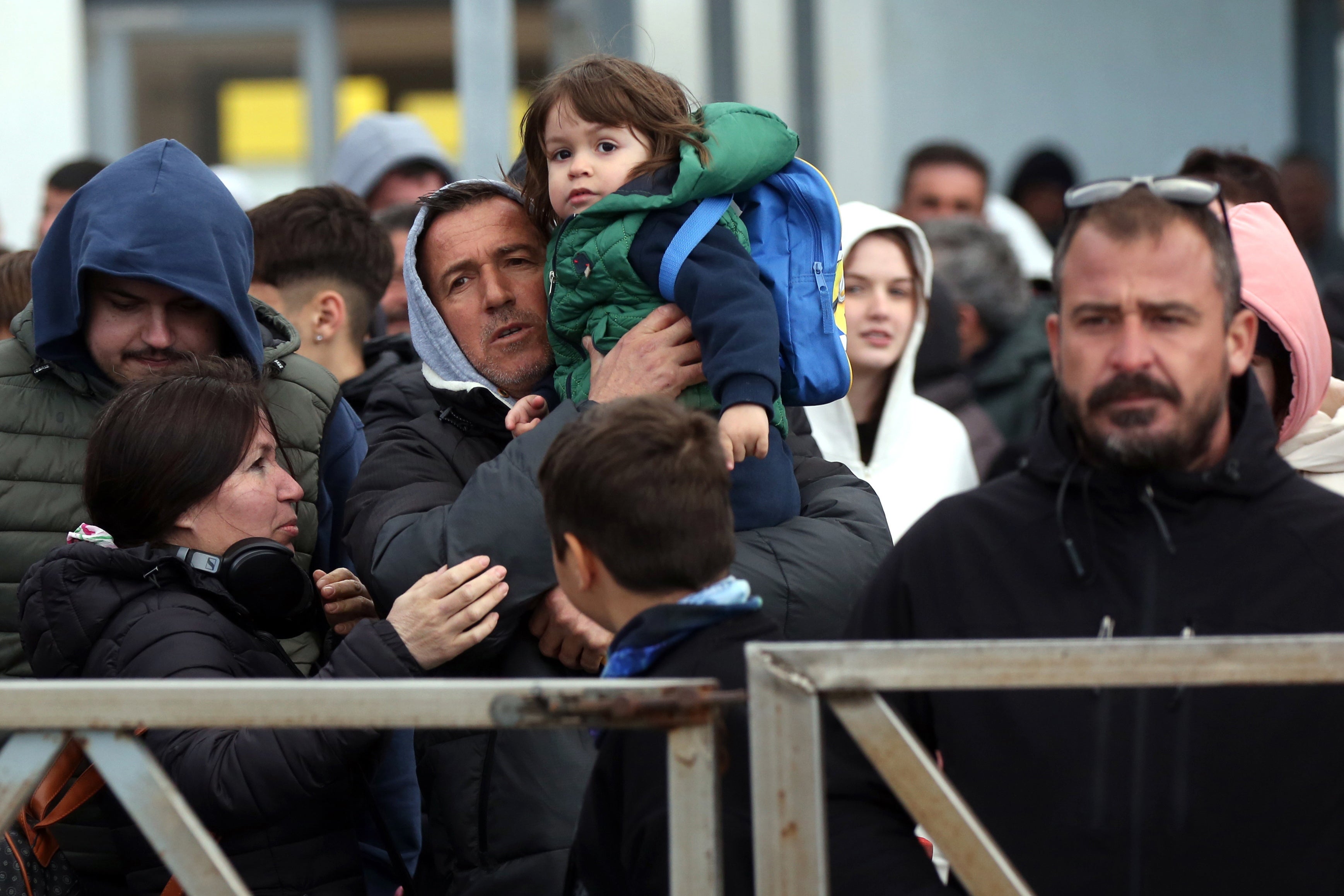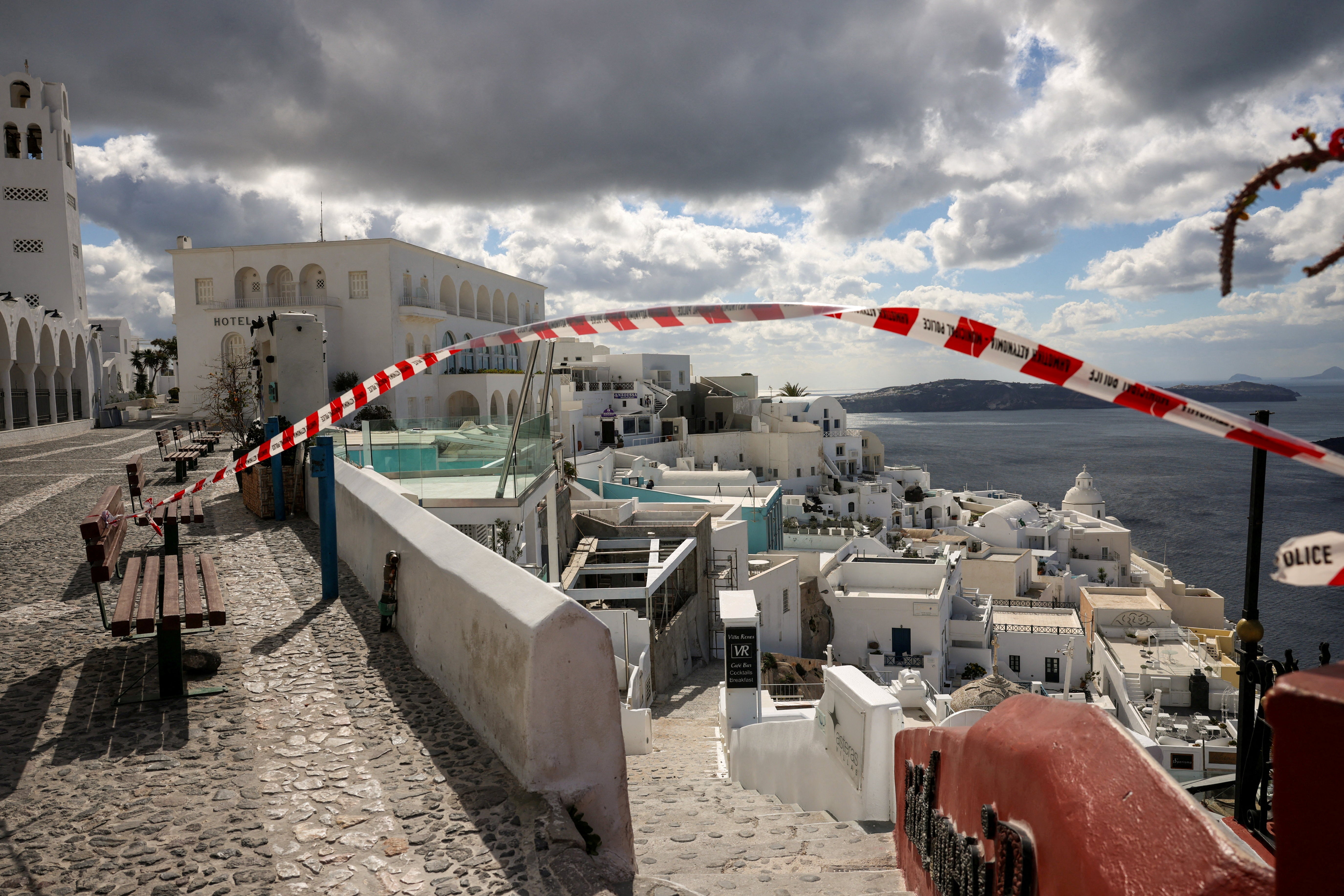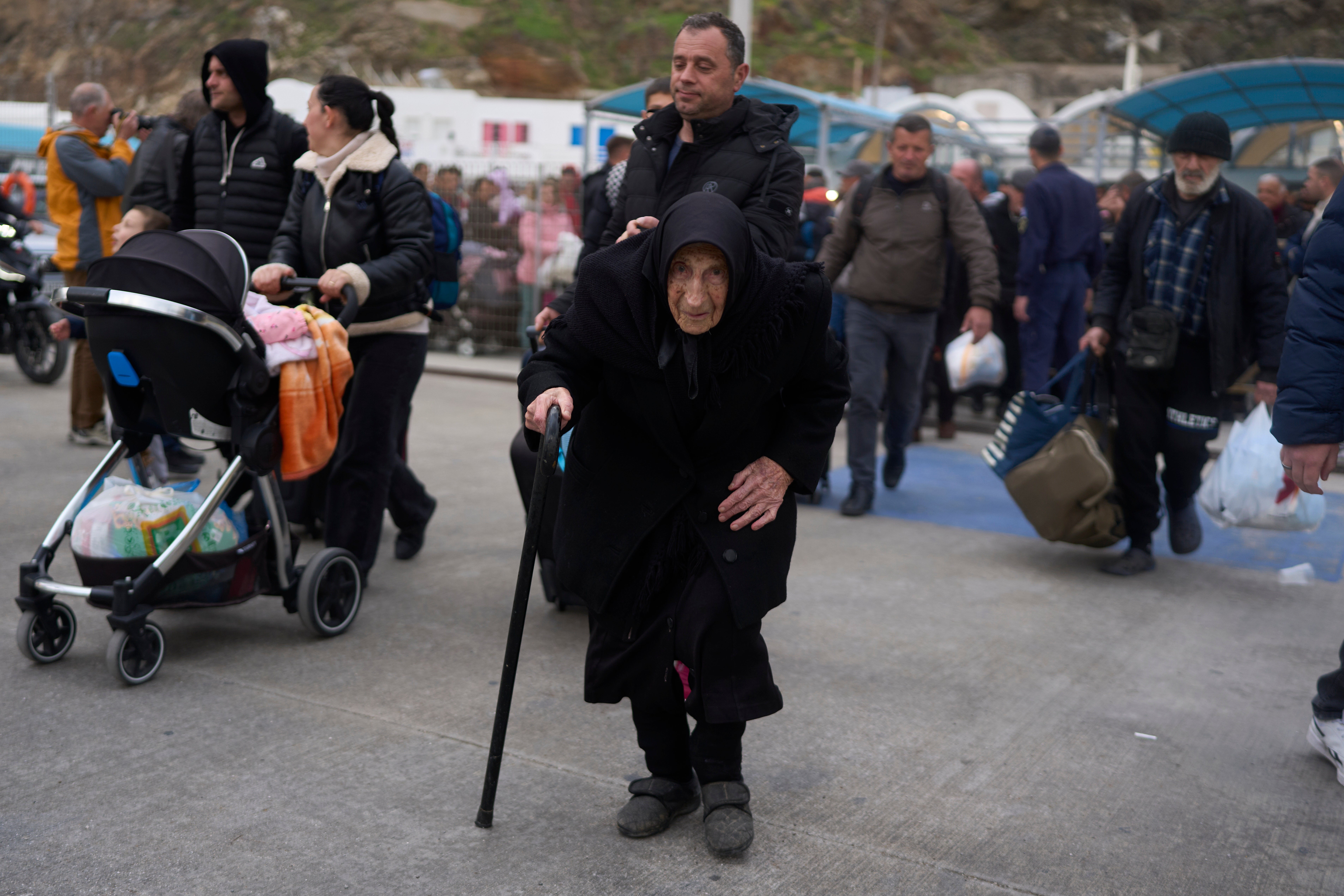As grey clouds descended on the deserted tourist hotspot of Santorini on Monday, the strongest earthquake out of thousands in the past fortnight struck the Greek island.
The picturesque whitewashed villages of Santorini, a tourist hub usually teeming with visitors even in the off season, have been rendered ghost towns after highly unusual seismic activity has rattled the region since late January.
Shops and restaurants have been boarded up, schools closed and towns have nearly emptied of all their residents after the incessant tremors bred fears of a looming natural disaster.
Late on Monday, Santorini was struck with its strongest earthquake yet when a 5.3-magnitude quake rattled the island - which took its current geographical shape after suffering one of the worst volcanic eruptions in human history nearly four millennia ago.
Scientists have been left unsure of whether there is a larger quake on its way and say the “earthquake swarm” - which is also affecting other nearby islands in the Aegean Sea - could last for months. A state of emergency was declared by Greek authorities for at least a month, as the Greek prime minister urged calm, promising that the “state mechanism” is on their side.
But with more than 10,000 quakes having struck since late January, according to Le Monde, many decided it was not safe to stay.

The island is usually bustling with tourists taking pictures in the perfect white streets of its largest city, Fira, or scaling mountainous terrain for stunning views. Few remain after 11,000 residents and holidaymakers fled the island for the mainland in the past week, fearing the worst in one of Europe’s most seismologically active regions.
Hundreds of concerned residents were pictured boarding boats to leave, as ferries and commercial flight operators had to add services to cope with the high demand from the majority of the island’s 15,000 strong population.
Tourists who stayed made the most of the situation, weathering the consistent tremors as they enjoyed the southernmost island in the Aegean Sea’s Cyclades island group to themselves.

"This place is amazing, really beautiful," Josephi Liu, a tourist from Guangzhou in southern China who had wanted to visit Santorini for years, said. Having been warned of the risk of earthquakes before he arrived, Mr Liu said it was “not a surprise”.
For the older residents however, the quakes are a little less concerning. “Older residents are used to the earthquakes,” says retired police officer and ship worker Panagiotis Hatzigeorgiou.
“But it's different this time. It's not the same to have earthquakes every two to three minutes. The main thing is not to worry," he added. "Now we can listen to music alone and have coffee by ourselves."
As the threat of a more severe earthquake hovers over those remaining on the island, hospitals have rehearsed emergency evacuation drills, running with stretchers among outdoor tents which have been set up in the hospital’s courtyard as a precaution.

Rock falls and landslides down the islands’ steep coastal cliffs have posed an added danger and caused minor damage to buildings. Dramatic footage shows loud crashes as large plumes of dust rising from the site of landslides.
This has provoked fears about the safety of a decades-long construction boom which saw quaint white villages built up on cliffs with soft and unstable volcanic soil.
"They wanted to develop the island and didn't pay attention to environmental and safety issues," said Dimitris Papanikolaou, professor of geology at the University of Athens and former head of Greece's Earthquake Planning and Protection Organisation.
Luxury hotels with pools and jacuzzis now hang off the treacherous cliffs, for many an alarming sight amid thousands of earthquakes. "Nothing should have been built in this zone," Mr Papanikolaou added. "It's a danger zone for as long as the seismic activity lasts."

On Tuesday, the Greek government announced temporary support measures for those employed on Santorini, to ensure jobs were preserved and businesses were supported in a local economy which is heavily dependent on tourism.
Businesses can suspend workers’ contracts until March 3, but layoffs have been prohibited and businesses must retain the same number of jobs as before, the government announced. Those whose contracts are suspended will be entitled to state compensation of up to €534 (£445).







